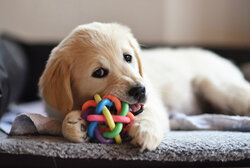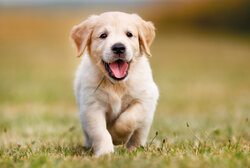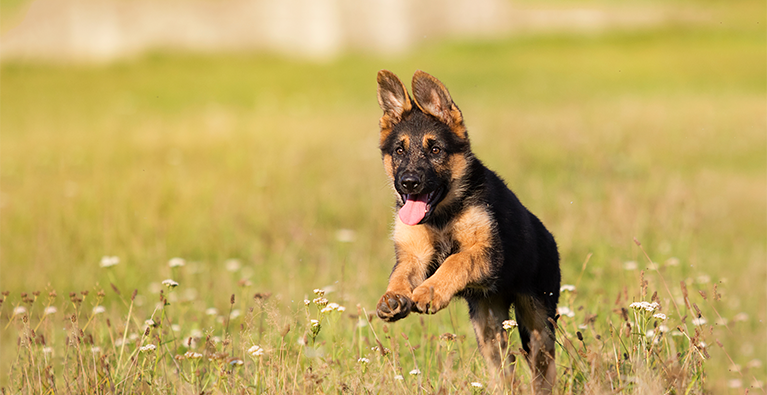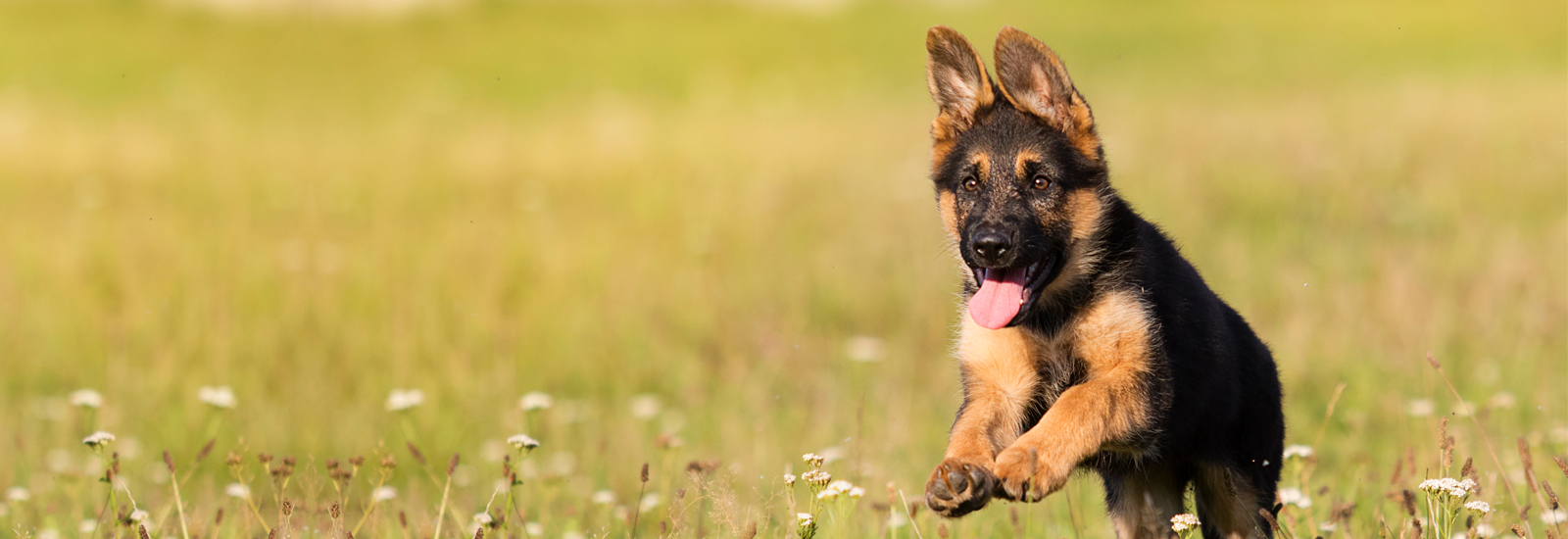When a puppy keeps biting
If your puppy bites your hand or chews on things, you should stop it in good time so that it knows that it must not overstep certain limits.
Experiences with biting in the first stage of life
From the age of 4 weeks, puppies start to become increasingly active and explore their environment. This also means that they show more and more interest in their siblings. They soon realise that it is great to pass the time with them. If they are not sleeping or eating, then playing with their brothers and sisters to the point of exhaustion is the order of the day. Chasing each other and playful fighting is particularly popular. And this does, of course, include the occasional bite.
At first, puppies are not very strong and their teeth are just beginning to emerge. Soon, however, these teeth will be extremely sharp. Puppies experience this on their own body, but also get to know the reaction when they bite a sibling too hard. It will yelp and will most likely end the game for the time being. This can be extremely frustrating when you are in the mood to play. With time, puppies therefore learn to hold back and avoid the game being called off.
Bite inhibition has to be learned
Not only do puppies have to acquire a natural bite inhibition towards their siblings, but this should of course also apply to the humans they live with. Bite inhibition is not innate, but develops over time based on experience. If a puppy lacks this, for example because it was separated from its family far too early, it will lack the ability to correctly assess its own situation in relation to other dogs. The same applies if a puppy is raised in a kennel and has little contact with people.
This is why it is so important to buy your dog from an experienced breeder. Breeders use the time before their puppies move into a new home to familiarise them with all types of situations and sounds. These include such everyday things as vacuuming, driving, radio or television. However, being in contact with different people, ideally ranging from toddlers to senior citizens, should also be trained at an early stage.
What should a puppy be allowed to do?
Even if a puppy comes from a responsible breeder, it will still have a lot to learn in its new home. This also includes bite inhibition, which it has probably already acquired to some extent, but which should now be worked on further.
If the puppy is now suddenly allowed to chew everything or bite the hands of its owners, then its previous experiences will be worth nothing. Do not be too lenient here, even if you don't really mind at the moment. Once the dog is fully grown, you may wish to change your mind! But then it will be hard or even impossible to wean your dog off its familiar and previously tolerated behaviour.
Stopping your puppy from biting
If your puppy is always biting, you should quickly establish clear rules. It is important that everyone in the household follows them. The dog will not be able to understand why it can bite the hands of its master, but not those of the children. Nor can it distinguish a new slipper from an old one that it is allowed to chew. It is best to only allow this with its toys. Everything else should be taboo, and this should be made clear to the puppy right from the start.
If it bites your trousers, your slippers or your hand, you must reaction immediately, making it clear that this behaviour is not allowed. You should firmly say "no!" or "stop it!" and immediately discontinue any playing. If it bites you on the hand, you can “yelp” and make it clear that this hurts. Turn your back and move away. Some dog owners leave the room for a while in order to send a clear signal. What you should not do is to only stop the game for a few seconds, while perhaps even showing sympathy and consoling the puppy. This could be misunderstood or even not understood at all.
Training puppies
Although there should be firm rules right from the start, you should never give your dog anything more than a very light tap. Being hit or shouted at are extremely negative for the dog and can damage the relationship. It is important that you give a lot of praise when your dog does something right. Unwanted behaviour, on the other hand, should be briefly commented on and the dog should be ignored. If the rules are rigorously followed by everyone in the household, success should be noticeable very quickly. If not, then do not hesitate to visit a qualified dog trainer. Because the longer a particular type of (unwanted) behaviour becomes entrenched in a dog, the harder it is to wean it off this behaviour.
You may also like this

A puppy is moving in
Tips on picking it up, the items you need and acclimatisation.

Feeding your puppy properly
A healthy diet is important for the growth phase.

Puppy school
Attending puppy school is very important

Housetraining a puppy
How to housetrain your puppy

